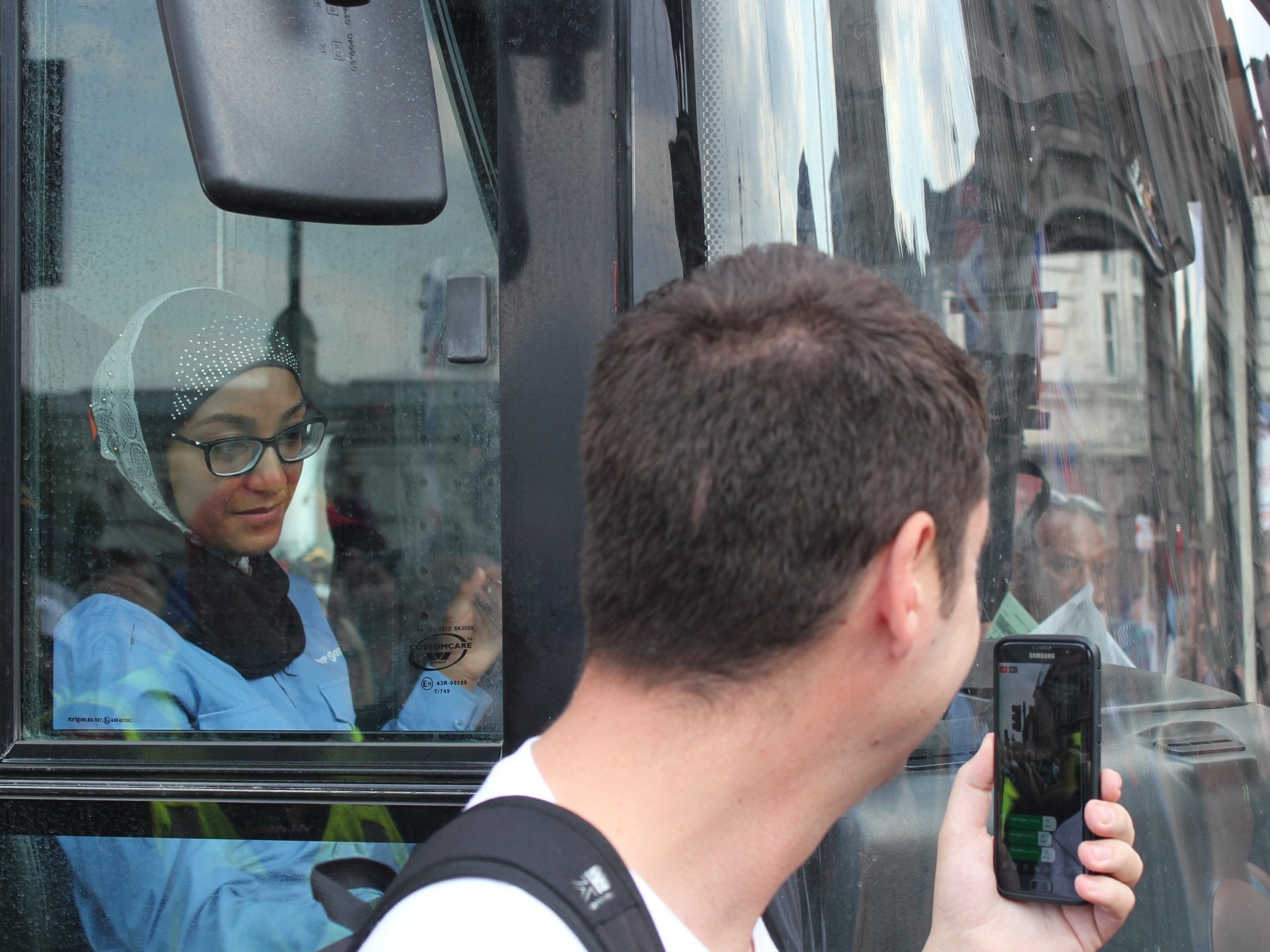Street attacks on Muslims rocket in UK
Street attacks on Muslims rocket in UK as perpetrators 'emboldened' by terror attacks and political rhetoric, report finds.
‘Anti-Muslim rhetoric is bleeding into the political landscape – it emboldens people’, writes, Lizzie Dearden.
==
Islamophobic street attacks are on the rise in the UK as perpetrators feel “emboldened” by terror attacks and political discourse, a report has found.
Tell Mama, which measures anti-Muslim incidents in Britain, recorded a 30 per cent rise in street incidents and a 16 per cent rise in 2017, taking the number of verified reports to a record of 1,201.
The group warned of a “marked shift” towards more serious offline incidents like physical attacks, vandalism and abuse, as hatred continues to spread on social media.
Fiyaz Mughal, the founder of Tell Mama, said Islamophobic hate crimes had been continually increasing over the past six years and fears the trend will continue.
“It is partly driven by terrorism, partly by groups who just want to divide communities, we have social media and we have politicians who seek to blame migrants,” he told The Independent.
“Anti-Muslim rhetoric is bleeding into the political landscape – it emboldens people.”
Mr Mughal described protests in support of jailed English Defence League founder Tommy Robinson as “frightening”, following outbreaks of violence and the blockade of a bus driven by a Muslim woman.
“The protests are growing and these people are trying to mainstream hate against the Muslim community,” he added, accusing Ukip of moving to the far right under leader Gerard Batten. “We need to have a zero tolerance approach in politics.”
Tell Mama recorded a 475 per cent rise in anti-Muslim street attacks in the wake of the 2016 EU referendum, but that was dwarfed by a 700 per cent increase in the week following the Manchester Arena attack and spikes were also seen after each Isis-inspired atrocity last year.
Researchers said: “Events which stimulate public discourse on immigration and Islam can correspond with a demonstrable ‘spike’ in anti-Muslim hate crimes and incidents.
“It is vital to note that these events are not the underlying cause of anti-Muslim incidents, but rather act as triggers, where people with latent racial prejudices feel emboldened to act on their views, violently or otherwise.”
In the wake of the Isis-inspired Westminster attack last March, a woman wearing a headscarf on a bus was told by a fellow passenger that “people like you” were responsible and spat on her.
In another case, after the Manchester Arena bombing, a trauma surgeon was racially abused and called a “terrorist” while on his way to work to treat victims at Salford Royal Hospital.
A Muslim man travelling on a bus to donate blood following the attack was also called a terrorist by a passenger who said he would “happily kill” him.
Other victims were accused of direct responsibility in the Manchester attack, and abused while laying flowers in memory of the victims.
A day after the London Bridge attack last June, a man left a fake bomb outside of Paisley Central Mosque with a handwritten message which read: “Youse are next, defo.”
Little over a fortnight after the atrocity, Darren Osborne ploughed a van into Muslim worshippers outside a mosque in Finsbury Park, killing one man and injuring several others.
He left a note filled with racial slurs in the vehicle citing terror attacks and grooming gangs as inspiration, after becoming radicalised by far-right posts online.
Tell Mama said the attack made it “clear that acts of racial or religious hatred can contribute towards acts of terrorism”, amid calls online for Muslims to be “gassed” and for people to petrol bomb mosques.
Almost three-quarters of verified incidents were street-level and the most widely reported type was abusive behaviour, followed by physical attacks, vandalism and discrimination.
Public spaces like parks and shopping areas were the most common locations for street attacks, followed by public transport, people’s homes and private property.
London saw the highest number of reported incidents in 2017, followed by northwest England, Yorkshire and Humber and the West Midlands.
Victims were predominantly women of Asian ethnicity, while 72 per cent of perpetrators where their identity was known were white men and boys.
Children under 12 were among those attacked and in Rotherham a 14-year-old Muslim boy was beaten and stamped on by a gang of at least 15 white boys who called him “Paki” in an unprovoked attack at a bus stop.
The boy’s mother said he still has a lump on his head more than a year after the attack in May, and that the perpetrators went free because the police “acted very slowly” and failed to submit the case to prosecutors on time.
Last week a report by HM Inspectorate of Constabulary found that despite “concerted efforts” some police forces were still responding poorly to hate crime by failing to properly identify incidents, or inform and support victims.
Inspector Wendy Williams said: “Hate crime is personal and pervasive; and the police frequently only have just one chance to identify it. If the victim is given the right support further offending can be prevented, and a force and national picture of hate crime can be built, allowing wider preventative activity.”
Mr Mughal said better outcomes for victims were needed to make them feel them safe to come forward to police, with hate crime believed to be vastly underreported.
“I think we need far better outcomes, we need more prosecutions, we need better access to alternative methods of conflict resolution like restorative justice programmes, so people can see that they’ve been heard,” he added.
Tell Mama also called for improved public education, stronger sentencing and a “zero tolerance” approach to hatred in schools and public authorities.
It said that although the response by social media companies was improving, they remain “behind the curve” with tactics being used both by real people and “bots” to sow division and intolerance.

Comments
Post a Comment